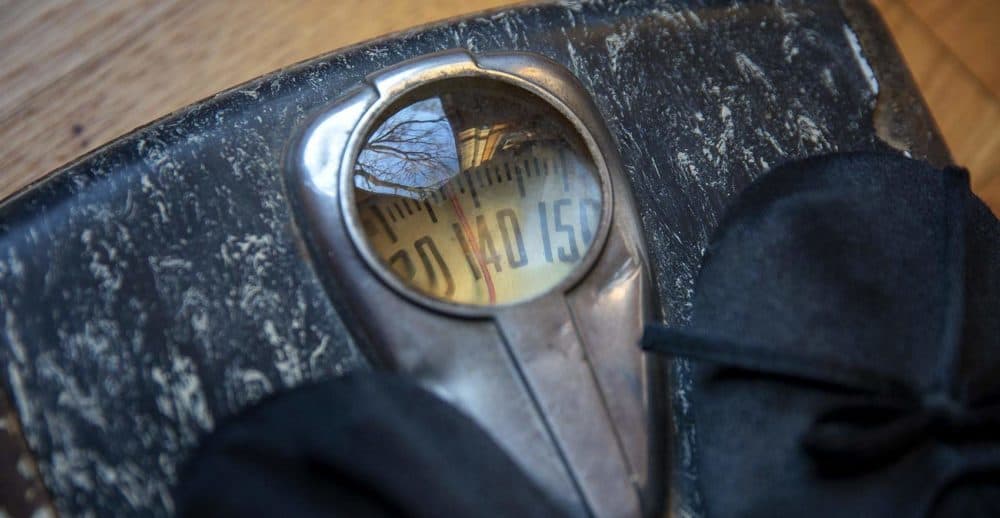Advertisement
Gay Men More At Risk Of Eating Disorders, But Finding Community Can Be Hard
Resume
When Zachary Whitney first entered treatment for anorexia, he was 5’10 and 104 lbs.
“I thought I needed to lose more weight,” he says. “I wanted to get into the 90s. At that time, I was very sick.”
He was nearly 17. But he had been struggling with disordered eating for years, first orthorexia – an obsession with health and fitness — and then anorexia. He says it started out as a way to feel in control.
“My childhood was kind of chaotic,” he says. “Something I could control was the diet and exercising.”
But by his mid-teens, external pressure set in. He says he became interested in fashion and wanted to look like a model.
“Not a male model, but a female model,” he says. “At the time I was struggling with my gender identity. I thought I wanted to transition into being a girl. And if I did, I would want to be a super thin girl, like a supermodel, like Kate Moss or Naomi Campbell.”
Whitney went through two rounds of treatment. Both times, he was conscious of how different he was from the people he met.
“I was the only male, particularly the only gay male,” Whitney says. “I could relate to the girls that I was in treatment with about several things, but other things I couldn't relate to, like losing their menstrual cycle.”
Whitney felt isolated — and he’s not alone.
Eating disorders will affect some 10 million men in the U.S. over their lifetime, according to the National Eating Disorders Association, but men are much less likely than women to seek treatment. And studies show gay and bisexual men are significantly more likely to develop a disorder than heterosexual men.
“Eating disorders have traditionally been associated with females and femininity,” says Jason Nagata, a professor of pediatrics at the University of San Francisco who focuses on eating disorders in young men. “So they are under-recognized and underdiagnosed in the male population.”
Nagata says men may fear stigma or shame if they ask for help because of that feminine association. Clinicians aren’t as quick to screen for eating disorders in men, and parents of teenagers might not recognize the behaviors that signal an eating disorder, which include dramatic weight loss, calorie restriction, food rituals and excessive exercise.
That last one is important, Nagata says.
“One reason why eating disorders may be under-diagnosed in the male population is that the ideal masculine body image is not necessarily thin,” he says.
Much of the research around eating disorders focuses on weight loss, like in Whitney’s experience. But many young men with eating disorders aren’t trying to lose weight. They’re trying to gain it by “bulking up” and adding muscle mass.
A study led by Nagata found that adolescent boys often see themselves as smaller than they really are, even when they’re at a healthy body mass index. Nearly one in three boys in the study reported trying to gain weight. At the extreme, boys may suffer from body dysmorphia.
“That’s when guys are trying to get really big and think they’re tiny or puny,” Nagata says, even when they’re not.
Gay and bisexual men face their own set of challenges. Whitney points to pressure from outside — such as stereotypes about how gay men should look — and from within the gay community as well. He says there are a small number of ideal body types for gay men that fall broadly within two camps: muscular and thin.
“We’re all so concerned about our bodies, and how they look,” he says.
Nonetheless, there’s also evidence that gay men who feel connected to other gay men have a lower rate of eating disorders, according to NEDA, which suggests that belonging to that community has a “protective effect.”
Whitney, now 24, hasn’t found that feeling yet. While his therapist and psychiatrist have helped him cope with his eating disorder, it’s been harder to find support from other men, especially queer men. He says the North Texas city he lives in doesn’t have a large gay community.
“It's not that it doesn't exist,” he says. “It just … doesn't exist in my world.”
So he put out the call on Reddit for queer men dealing with the same issues, and someone answered. They’re now talking online.
Whitney says that helps. But his eating disorder is something he’ll always have to manage — with or without a community.
“It’s a way to control things internally,” he says. “That sort of control and that power that the eating disorder gives you becomes very addictive.”
If you are struggling with an eating disorder, you can call the National Eating Disorders Association Helpline at (800) 931-2237. This is National Eating Disorders Awareness Week.
This segment aired on February 25, 2020.

